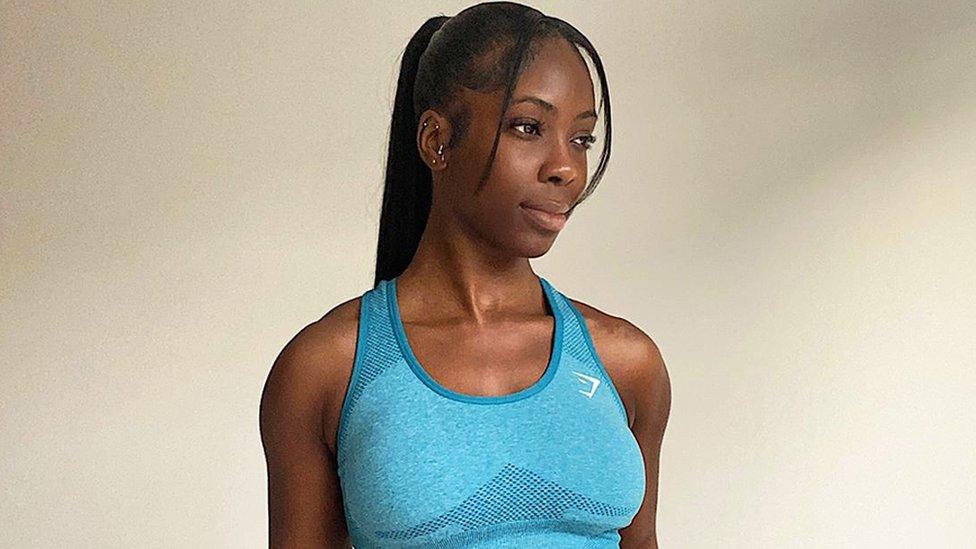The rise of female weightlifting and how it is changing lives
- Published
The rise of female weightlifting and how it's changing lives
In the male-dominated realm of weightlifting and bodybuilding, women are steadily carving out their place, not just as participants, but as champions and advocates.
Behind the clinks of metal and the grunts of exertion, lies a narrative of empowerment, resilience and smashing stereotypes.
With Emily Campbell due to represent Team GB at the 2024 Olympic Games, external in Paris this summer, the spotlight will be shining on the sport.
The Olympic silver medallist says she is committed to celebrating its "uniqueness" and wants to inspire girls and women of all ages, shapes and sizes.
"We have more women in the team representing Britain than we do men at the moment," said 61-year-old Trish Tenn from Cheltenham, who holds a world record for the snatch movement - lifting the barbell from the ground to overhead in one smooth motion.
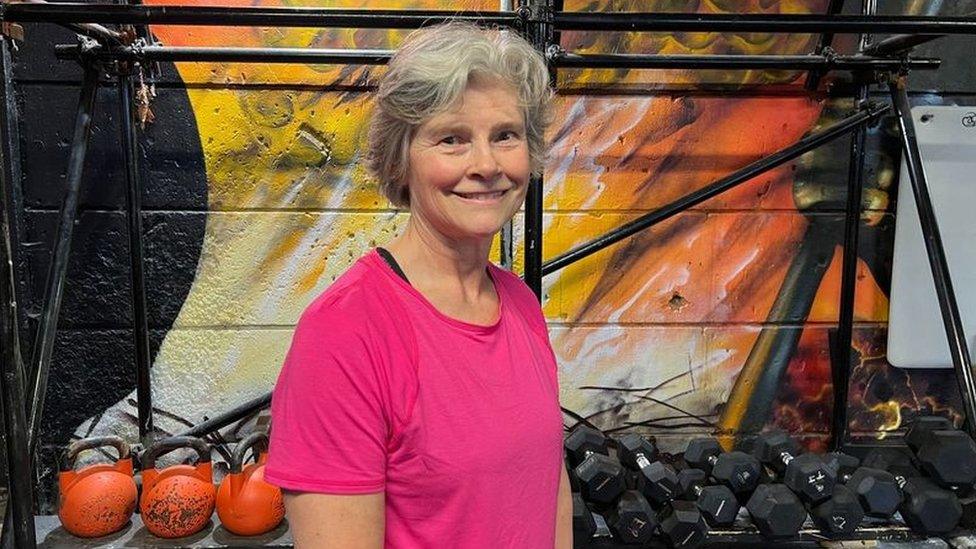
Trish Tenn from Cheltenham started weightlifting in 1986
After a 27-year break, Ms Tenn has come out of retirement and has started competing in the sport again.
She won the British Masters competition in Bangor on 12 April and was crowned "Championship Grand Master" out of 50 female lifters.
For amateur bodybuilder Mia Collins, bodybuilding isn't just about sculpting her physique; it's a journey of self-discovery and discipline.
"You get out what you put in and every day is an uphill battle with it," said the 25-year-old from Bristol.
"But the output at the end - you have so much pride in what you've achieved. So few people do it because it is so challenging."
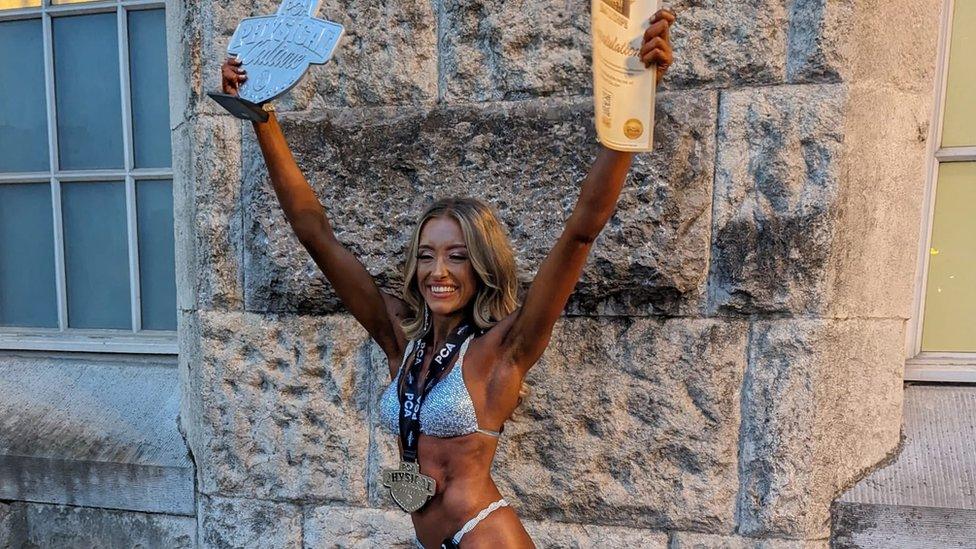
Amateur bodybuilder Mia Collins says bodybuilding gives her a sense of "pride"
Ms Collins started training for bodybuilding competitions after lockdown and is currently getting ready to compete this summer.
Working in sales for a cyber-security firm, Ms Collins said the skills learnt from bodybuilding have helped her to excel in her demanding career.
"And ultimately, I'm 25 now, but I'm going to be 75 one day.
"And so for me to focus on my health, my wellbeing and my muscular strength, it just means I'm hopefully going to be a little bit healthier down the line."
Dr Brendon Stubbs, a leading researcher in physiotherapy at King's College London, said there has been an increase in uptake of the sport among women in the last 10 years.
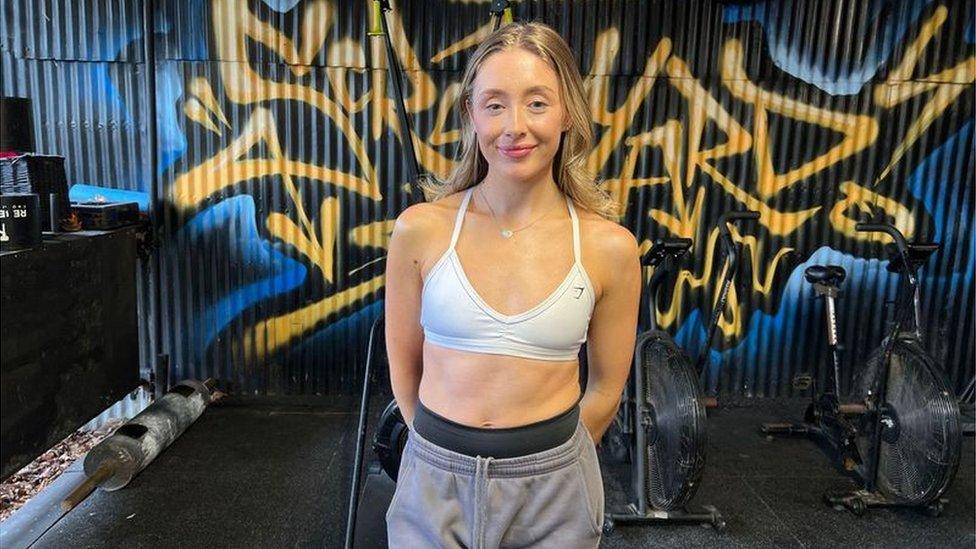
Mia Collins said the skills learnt from bodybuilding have helped her to excel in her demanding career
"I think we've had massive issue with gendered expectations or roles placed upon women particularly," he said, noting the shift in terms of acceptance of women in the sport.
Warning: This article contains an image some readers might find upsetting
Hanah Gane's story with weightlifting took a unique turn. Battling with anorexia, she found solace and strength in the gym.
"It literally saved my life. I honestly can say I wouldn't be here if it wasn't for the gym," said the 28-year-old.
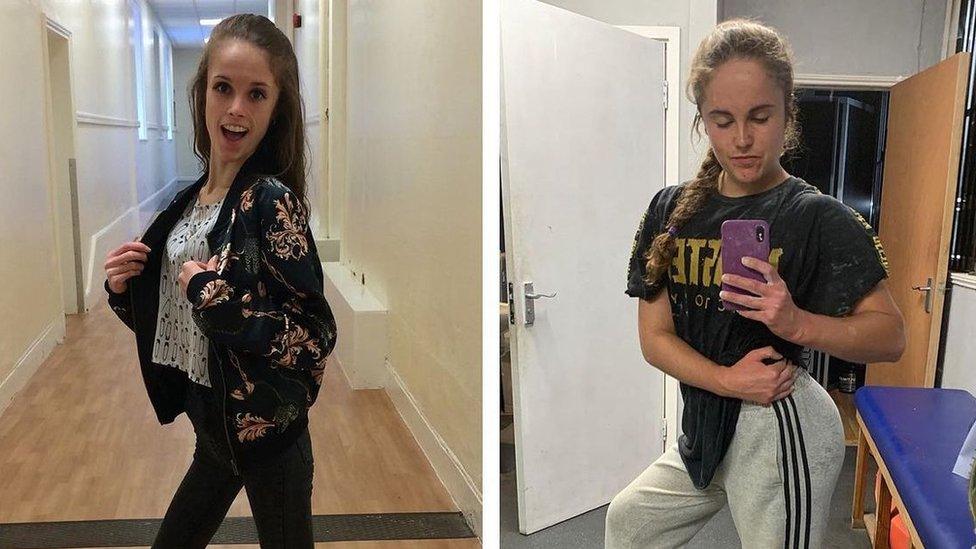
Hannah Gane says bodybuilding has helped her to recover from her eating disorder
She was diagnosed with anorexia nervosa at the age of 13 and was hospitalised when she was 14.
At 18, Ms Gane was admitted to an eating disorder clinic in Exeter. When she was discharged, she quickly lost all the weight she had put on again.
She decided to recover on her own, using bodybuilding as a tool for her recovery.
"I had no life when I was skinny. I had nothing. I had no emotions, no happiness, no social life, nothing," she said.
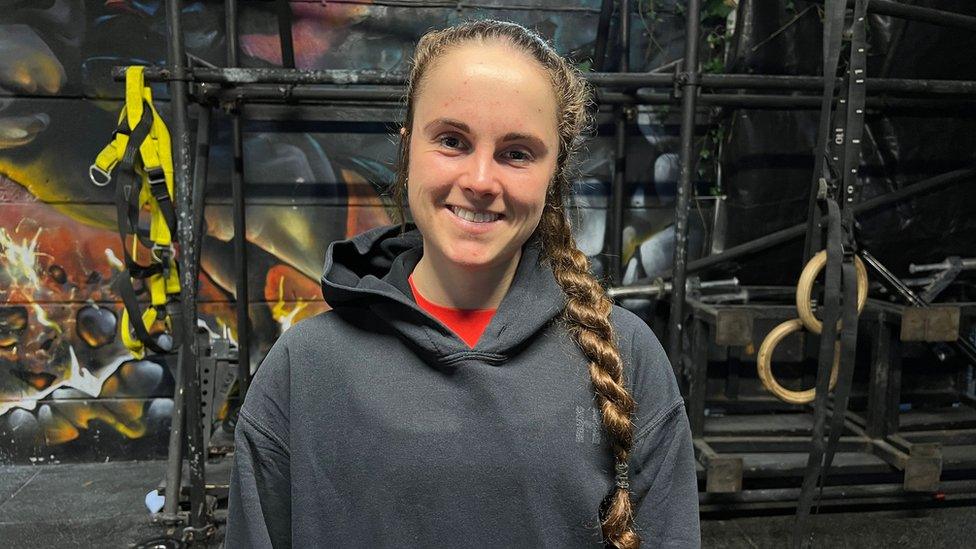
Ms Gane said she has made friends in the bodybuilding community
"But being strong has given me so much and it's not just about what you look like," said Ms Gane.
"I've made friends, I'm healthy. I'm doing what I love every single day and I'm living life now."
Since taking up bodybuilding, she has documented her recovery journey on TikTok and some of her videos have gone viral, with 44 million views.
Ms Gane is currently training for the Raistrick Royal Rumble in August.

If you've been affected by the issues in this story, help and support is available via the BBC Action Line

World Natural Bodybuilding Federation Uk (WNBF) and Pro Figure athlete Steff Noble said she encourages more women to get into weight training and challenge themselves and grow their confidence.
"The confidence the journey to competition and getting up on stage gives us as women is tremendous and transfers to all other areas of life," she said.
Phoebe Pothecary, 20, struggled with her weight for years and tried many home workouts during the pandemic, but found nothing that worked for her.
But it was one trip to the gym in July 2021 that opened the door to her love of the "unique" sport.
Now competing nationally, Ms Pothecary says she dreams of coaching others and "helping the sport grow".
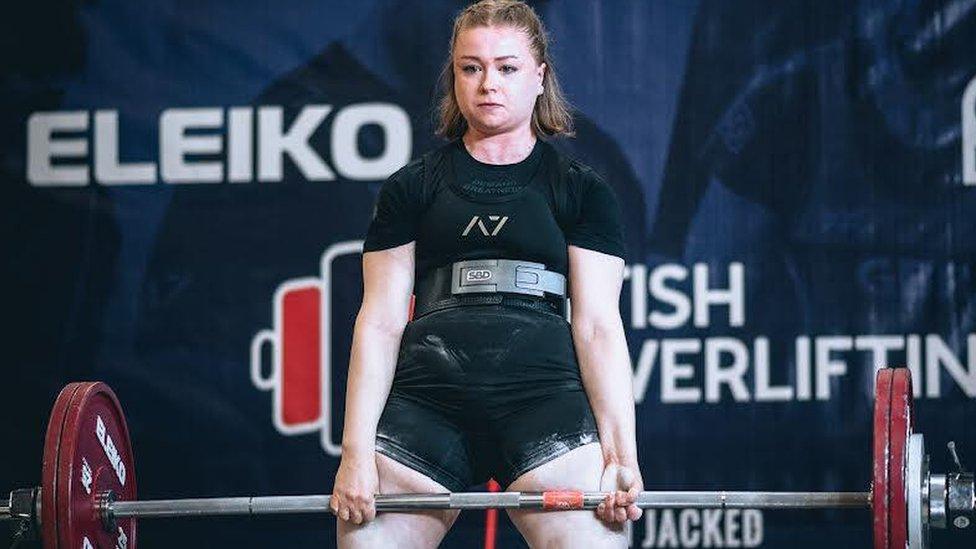
Phoebe Pothecary competes nationally in powerlifting
Trish Tenn's story stretches back to a time when women in weightlifting were rare.
"When I started started in 1986, there were no other women [in the gym] at all," she said.
Mrs Tenn was invited to train at a weightlifting gym in Haringey, London when a coach noticed her potential.
She joined the British team and eventually became a world-record holder in Olympic weightlifting, winning the British Championships three times.
"We were the pioneers for women's weightlifting in the British team," she said.
Mrs Tenn said weightlifting has massively increased her confidence, body weight and body tone. She plans to continue the sport for as long as she can.
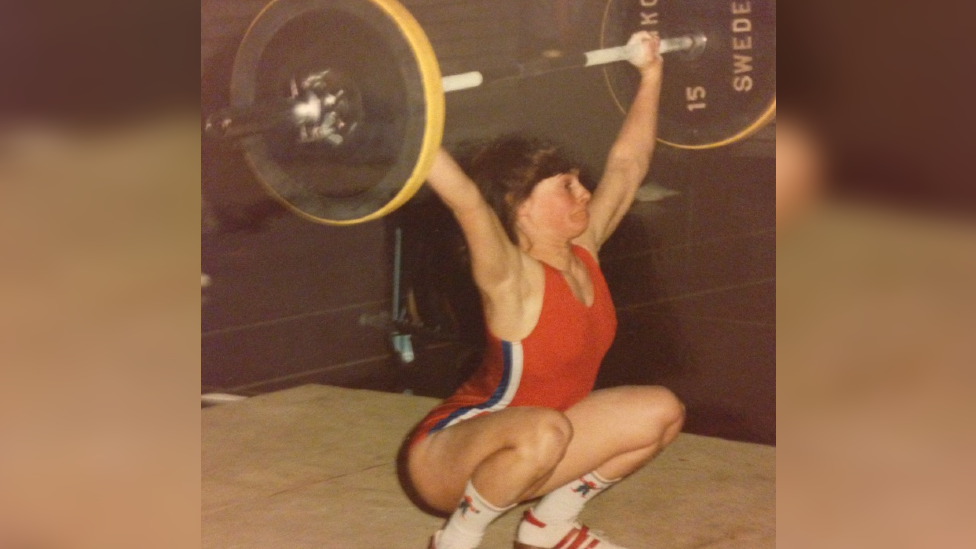
Mrs Tenn competed for the British Team between 1986 - 1994
Dr Stubbs said previous population studies in the early 2000s show that less than 10% of women were engaging in regular strength training.
But a 2023 global study of more than 37,000 women in 16 countries around the world called Move Every Mind, external, found that 40% of women reported that they were engaging in regular strength training.
The benefits of strength training, external include: supporting musculoskeletal health, improving heart health, maintaining a healthy weight, boosting mental wellbeing and strengthening joints.
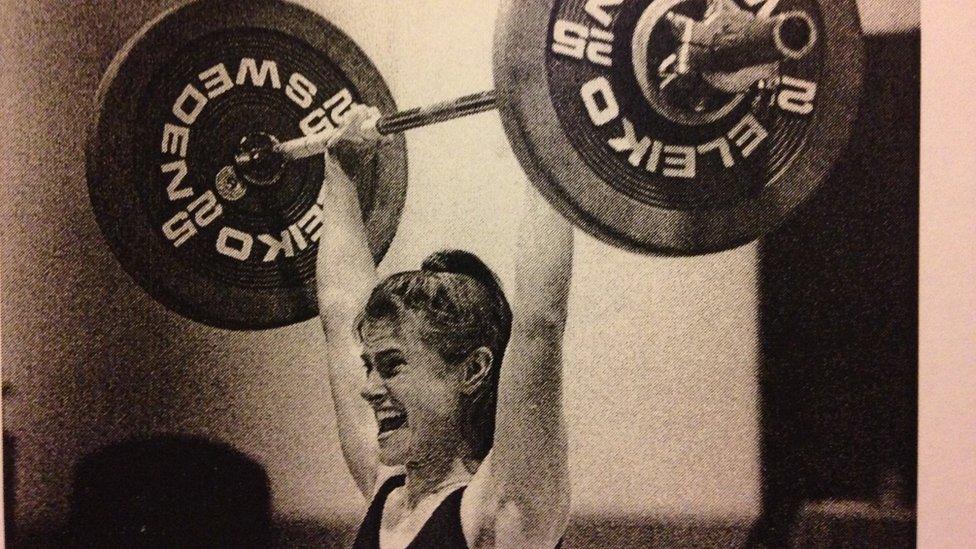
Trish Tenn breaking the British record of 92.5kg (203.9lbs) in the 1990s
But Dr Stubbs also added that while training is really important across the lifespan, it becomes more important as women age and and enter the menopause.
Strength training can have a key role in negating the natural aging processes, external that can make women's bones thinner, he said.
Dr Stubbs also noted that the surge in fitness influencers across social media platforms has played a pivotal role in terms of encouraging women to engage in resistance training.
Through their content and narratives, these influencers have shared their own journeys, strengths and triumphs to encourage women to step into the weight room with confidence.
"I think there's a lot of empowerment for women in the sport at the moment," said Ms Collins.
"You've got a lot of icons online at the moment - really well-known bodybuilding women who still look very feminine."
'Body confidence'
Mrs Tenn also highlighted the importance of having positive role models in the sport and said she would like to see the sport taught in schools to boost young girls' confidence.
And Ms Gane said she hopes her content promoting recovery and a healthy lifestyle will help young girls struggling with body confidence.
"I feel that if one post that I do could help one person, I will be happy," said Ms Gane.
"So if there's one girl that's suffering with an eating disorder and she sees me doing what I'm doing and she thinks 'I wanna do that' and it changes her, then that makes me really happy."

Follow BBC Bristol on Facebook, external, X, external and Instagram, external. Send your story ideas to us on email, external or via WhatsApp on 0800 313 4630, external.
- Published4 February 2024
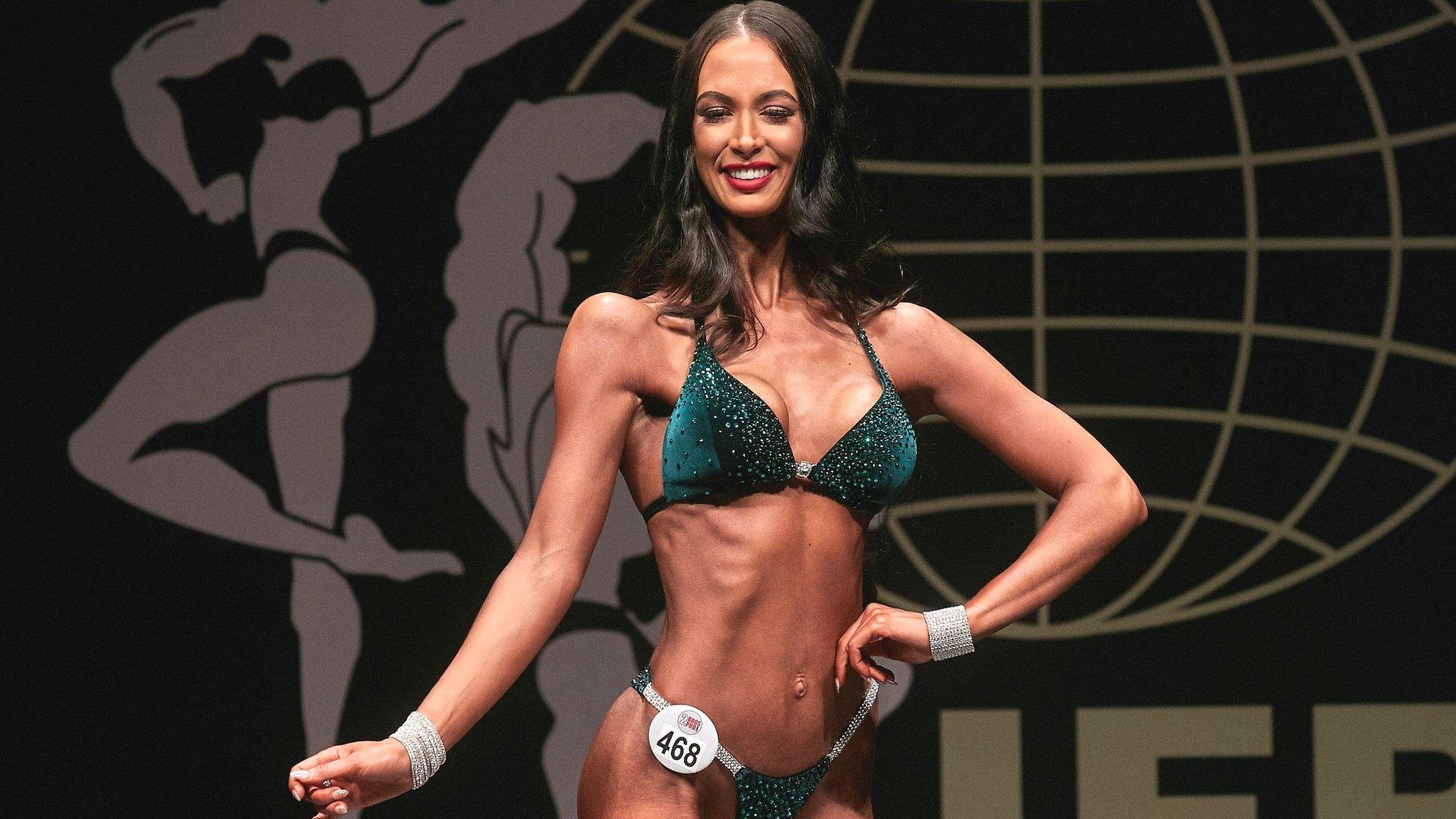
- Published4 February 2024
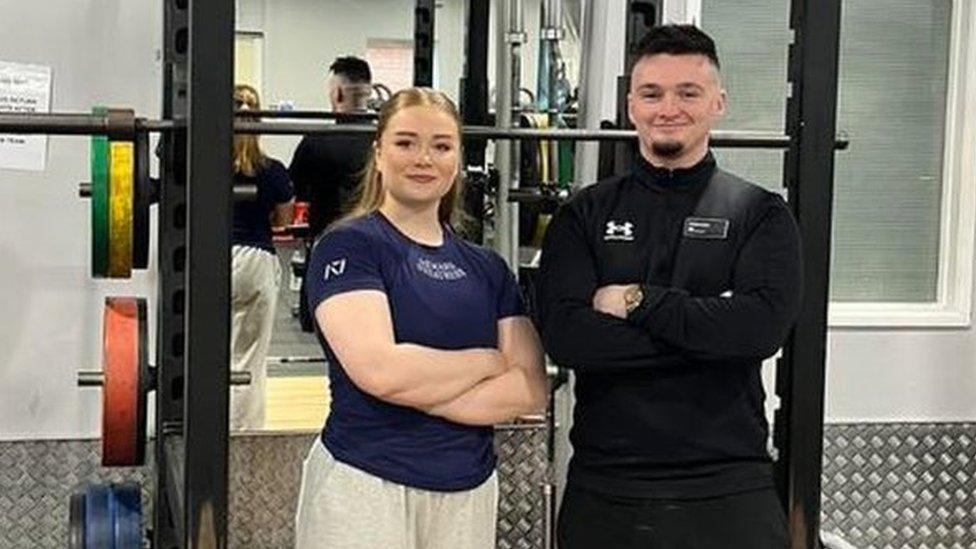
- Published26 July 2023
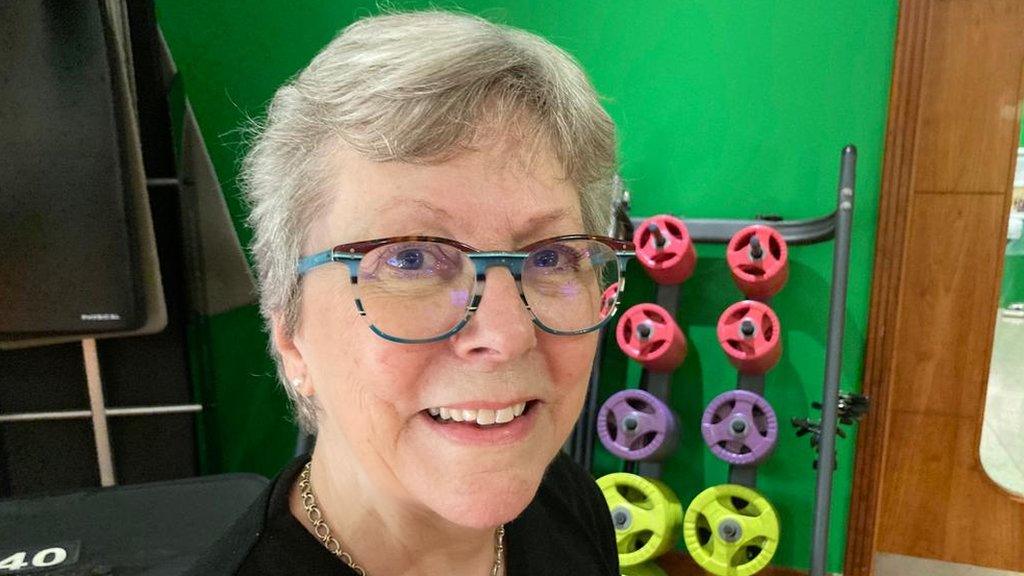
- Published15 February 2023
